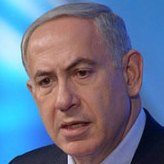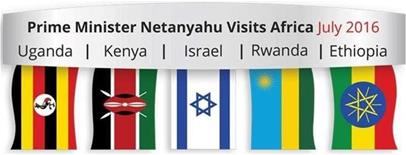
Banner

Israel & Africa ‘neighbours and partners’ – Lenk
Published
8 years agoon
By
adminANT KATZ
After wrapping up his week with an address to the Ethiopian parliament, ABOVE, Netanyahu said Israel/Africa relations were nothing new. He invoked the three-millennium-old visit by King Solomon to meet and the Queen of Sheba
Israeli Prime Minister Benjamin Netanyahu’s four-nation Africa visit where he met with seven African heads of state this month was the first to sub-Saharan Africa by a sitting Israeli prime minister in nearly three decades.
Speaking to the media after his weekly Sunday Cabinet meeting, an up-beat Netanyahu gave his feedback on the trip. He called his trip “an important visit” and said: “The trip began with a historic summit, not just with the four leaders of https://www.sajr.co.za/images/default-source/People/single/bibi-africa-logo.jpg” class=”sfImageWrapper”> The trip had been a huge success – both diplomatically and commercially.
The trip had been a huge success – both diplomatically and commercially.
On the political front, Netanyahu was assured by all seven leaders that they would work to restore Israel to an observer to the African Union, which is composed of 54 countries.
While this process will take time, said Netanyahu, “we have begun the process” of a long journey toward gaining seats for Israel in international forums.
“During the visit we signed a series of agreements with Uganda, Kenya, Rwanda and Ethiopia,” said the PM, and “no less important, 70 Israeli business people came on the visit.” He said that the business delegation told him that their meetings had “opened doors and advanced their economic interests, as well as those of the State of Israel,” adding that this “will contribute not only to economic relations, but also to diplomatic and security relations”.
‘Topics have resonance in SA too’ – Lenk
Israel’s Ambassador to South Africa Arthur Lenk, told Jewish Report that “it was a wonderful week, seeing Israel and Africa reach out to each other as neighbours and partners.”
 Lenk, PICTURED AT LEFT, said that he was particularly “inspired to see leaders of countries like Kenya and Rwanda emphasising that it was in their national interest to deepen their relationships with Israel”.
Lenk, PICTURED AT LEFT, said that he was particularly “inspired to see leaders of countries like Kenya and Rwanda emphasising that it was in their national interest to deepen their relationships with Israel”.
Lenk had also been amazed at “how many other leaders spoke with some disappointment that the Israeli delegation didn’t visit their countries.” He said that it is becoming increasingly clear that “Israel’s experience in areas such as water, agriculture, innovation, cyber technology and homeland security are relevant to so many African countries.”
And, says Lenk, “all of those topics have resonance with many here in South Africa, too”.
Netanyahu said after the trip that each of the seven countries, without exception, “are interested in enhancing relations with Israel because they see Israel and its technological capabilities as a major force.”
This included assisting them in the war against radical Islam that is inundating all of Africa, he said, and also that they “see Israel’s technological and entrepreneurial ability as a very major tool in developing their countries in all areas.” Furthermore, the PM said, both during his visit and afterwards, “we are receiving calls from other countries, some of which we do not have relations with, that they want to enhance relations.”
Netanyahu’s trip had started at an emotional ceremony marking the 40th anniversary of the Entebbe rescue mission – in which his older brother, Yoni, was the only IDF casualty.”
Related reads on Jewish Report Online:
- JEWISH PRIDE SHINES AT ENTEBBE
- SYDSHUL PRODUCES NEW ENTEBBE VIDEO
- ENTEBBE STILL IMPRINTED ON JEWISH PSYCHE
Netanyahu was the first sitting Israeli head of government to travel to Africa since Yitzhak Rabin went to see Morocco’s King Hassan II in 1993.
Israel is helping Kenya build a 440-mile-long wall along its border with Somalia to prevent Al-Shabaab and other militants from crossing the frontier.
Although much of the media coverage of the trip has focused on the ceremony at Entebbe, Uganda, where Netanyahu unveiled a modest monument commemorating the 40th anniversary of the daring rescue by Israeli commandos of hijacked airline passengers – a raid commanded by the prime minister’s older brother, Yonatan, who lost his life during the mission – the real story is the significant return of Israel in recent years to a continent that had been virtually closed to it for a long time.
Netanyahu made stops in Uganda, Kenya, Rwanda and Ethiopia; while in Uganda, he also met with leaders from South Sudan, Tanzania and Zambia.
In the 1960s, when many African states achieved independence, Israel was one of the first countries to establish diplomatic relations with them and to offer them assistance. Israeli ambassadors operated in 33 countries, and the country was, for a period, a major aid donor.
This is something long-time Foreign Minister (and later Prime Minister) Golda Meir acknowledged in her memoirs:
Did we go into Africa because we wanted votes at the United Nations? Yes, of course that was one of our motives – and a perfectly honourable one – which I never, at any time, concealed either from myself or from the Africans. But it was far from being the most important motive, though it certainly wasn’t trivial. The main reason for our African ‘adventure’ was that we had something we wanted to pass on to nations that were even younger and less experienced than ourselves.”
Seven of the 33 countries, however, severed their ties with the Jewish state following the Israeli victory in the 1967 Six Day War; 23 more broke off relations after the Yom Kippur War in 1973 and the Israeli occupation of the Sinai Peninsula, territory belonging to Egypt, a member of the Organisation of African Unity.
Israel’s involvement with Africa is not new. Now, as in the past, Israel is sharing its expertise and experience in public health, agriculture, food security, water sanitation and many more areas Africa. Below are links to some of the most relevant articles on the Israeli Ministry of Foregn Affairs’ website
- RWANDA: MASHAV has established a Centre of Excellence in Agriculture near Kigali in support of Rwanda’s national plan to modernise its agricultural sector, to stimulate agricultural growth and alleviate rural poverty.
- ANGOLA: Israel’s goal is to strengthen co-operation with Angola, and the main fields of co-operation are agriculture, health, education, aviation, construction, fisheries, diamonds, security and telecommunications, and humanitarian activities.
- KENYA: Israel’s goal in Kenya is to help create a sustainable and comprehensive development programme focusing on food security, water safety and sanitation, healthcare, economic growth, community building, the empowerment of women and education.
- UGANDA: In response to potential new emergency situations and mass casualty scenarios, MASHAV is upgrading and refurbishing the emergency trauma at Kampala’s Mulago Hospital.
- CAMEROON: Israel’s ties with Cameroon focus on the transfer of knowledge and technology aimed at ameliorating Cameroon’s economic and social situation.
- ETHIOPIA: Booming and more looming partnerships
- A Knesset caucus for Israel-Africa relations was also launched in February
Subsequently, among African states, only Malawi, Lesotho, South Africa (old and new) and Swaziland kept full diplomatic relations with Israel. The nadir in Israeli-African relations came in November 1975, when 19 African countries voted in favour of the infamous United Nations General Assembly resolution identifying Zionism with racism, although the measure’s sponsors failed to achieve an African consensus when five African countries – Côte d’Ivoire, Liberia, Malawi, Swaziland and the Central African Republic – voted against the draft and 16 other African countries abstained.
Following the 1978 Camp David Accords, which brought peace with Egypt, Israel has slowly re-established or established ties with nearly all of the sub-Saharan African countries, the exceptions currently being Djibouti, Comoros, Guinea, Mauritania, Mali, Niger, Chad, Somalia and Sudan (although Somalian President Hassan Sheikh Mohamud and several of his ministers recently met with Netanyahu in a visit to Tel Aviv (which went unreported until this month) and delegations from Mali and Niger have also come calling.
Setting off on his visit to East Africa, Netanyahu told his Cabinet that “Israel intends to return to Africa” because the diplomatic links have “very important implications vis-à-vis varying our international alliances and international relations, which are expanding to the major powers in Asia, to Russia, to Latin America and — of course — to the African continent.”
Prime Minister Hailemariam Desalegn of Ethiopia not only promised to work to upgrade Israel’s position at the African Union, he declared that “the East African corridor has the huge potential for co-operation with Israel, and we need to engage Israel”, adding that those African countries that disagree with Israel on certain issues had no right to veto the rest of the continent’s co-operation with the Jewish state.
The Ethiopian leader also publicly thanked Israel for its support in securing for Africa’s second most populous country a rotating seat on the UN Security Council beginning next year and promised to reciprocate by helping Israel in international forums.
Israel’s quiet return and better relations with African countries has contributed concretely to Israeli diplomatic successes.
There are also increasing economic and commercial ties between Israel and its African partners, as underscored by the many representatives of Israeli firms who accompanied Netanyahu on the trip. In fact, in many cases, the investments made by Israeli business —especially in the water, agriculture, energy and information technology sectors of several of Africa’s emerging economies – helped pave the way for the renewal of diplomatic cooperation.
In Rwanda, for example, an Israeli-American company, Gigawatt Global, is behind a year-old solar power plant that boosted the country’s generation capacity by 6 per cent, providing efficient renewable energy to some 15 000 homes. The plant, East Africa’s first utility-scale photovoltaic facility, was a finalist for 2015 US Secretary of State’s Award for Corporate Excellence in the category of environmental sustainability.
Another highlight is that, following his meeting with Netanyahu, Rwandan President Paul Kagame, whose country has had, since 2014, a partnership agreement with Israel establishing a forum for regular consultations between the two countries and boosting investment, mentioned several areas that were ripe for future cooperation:





nat cheiman
Jul 18, 2016 at 11:54 am
‘Pity about SA’s reluctance regarding Israel’